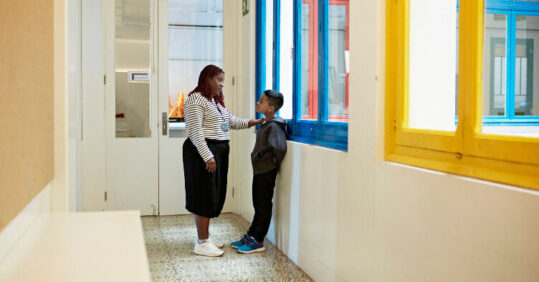Non-clinical staff working with children receive mental health training in £400,000 pilot scheme

More people working with children and young people are to receive mental health training as part of a pilot scheme from Health Education England (HEE).
The pilot scheme hopes to train 10,000 staff working early years, education, library services, and physical health roles across sites in Southampton, Portsmouth, and Norfolk, to help identify the signs of mental health in children and signpost them to the appropriate services.
In collaboration with the child mental health charities the Ana Freud Centre and the Charlie Waller Trust, and the National Children’s Bureau, HEE plans to expand the programme nationally subject to a successful initial trial.
Related Article: New digital support for community nurses in 10-year plan
This comes amid severe workload issues for children and young persons (CYP) mental health services. The latest data shows that the number of CYP accessing NHS mental health services has risen sharply since the pandemic.
One in four young people aged 17-19 had a probably mental health disorder in 2022 according to NHS Digital, while 22% of 16-year-old girls had been in contact with NHS mental health services.
HEE said that amid a rising demand for services, it is more important for people in pubic facing roles to be aware of when a child needs help and how best to support them.
Debi Reilly, senior responsible officer for mental health at HEE, said: ‘We know more children and young people than ever need mental health support and treatment, so it is vital that we are able to raise awareness and help people spot the early signs that a child is struggling.
‘There is a clear gap in professional development for the children’s workforce, who currently receive no mandatory training in children and young people’s mental health.
Related Article: Nurse had to ‘freeze’ PPE during pandemic to re-use in care home, Covid inquiry hears
‘This pilot aims to improve consistency, so that all workers who come into contact with children receive the same basic training in emotional health, much as we skill everyone in how to safeguard children.’
The programme will initially be available to a broad range of sectors in the pilot sites, including early years, education, childcare, physical health, and library services. Using a total investment of £400,000 drawn from HEE’s existing budget, the total cost for this initial pilot programme works out at around $4,000 per trained member of staff.
Staff will be trained in emotional health, including how to speak to CYP about mental health, how to offer support and signpost resources. The training will include how to recognise signs of anxiety, low self-esteem and loss of social confidence, providing practical skills on how workers can help and when to ask for more specialist support.
Anna Feuchtwang, CEO of the National Children’s Bureau, said: ‘We know from research that a large proportion of all lifetime mental illness starts during childhood. So, it follows that the diverse range of adults who work with children have a role in spotting the signs of mental distress early and know how to respond to wellbeing needs.
Related Article: Tell us what practice nursing means to you and potentially win £1,000
‘Alongside designated mental health services and family members, these staff are often well placed to recognise mental health problems in babies, children and young people before they escalate, but they may need support to respond effectively.’

See how our symptom tool can help you make better sense of patient presentations
Click here to search a symptom




